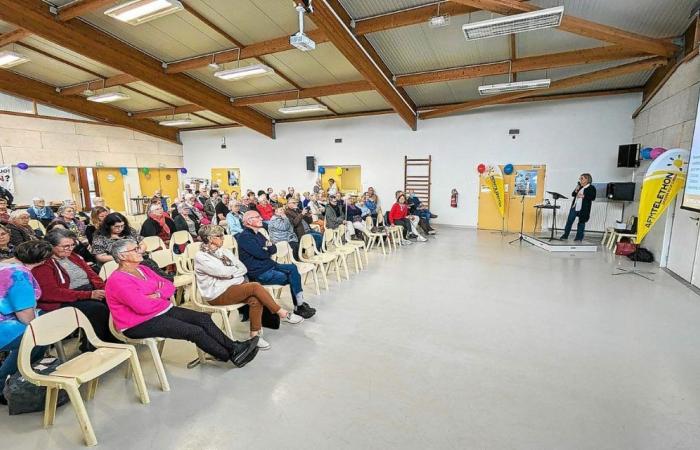The presidents and treasurers of each committee or association of the Téléthon des communes du Finistère sud were invited, Saturday October 12, to attend the launch of the 2024 edition which will take place on November 29 and 30.
The mayor, Michel Cotten, welcomed “all the local contributors who give their best every year in the field of solidarity and generosity. The Telethon in Tourc’h has been going on since 1994, 30 years of mobilization. The Tourchoises and Tourchois mobilize each year with renewed enthusiasm each time: more than 50 volunteers who mobilize over four days to make, last year, nearly 14,000 crepes and offer various activities (crepe meals, hiking, dancing evenings). ), without forgetting the contribution of numerous local partners. I recently read that Généthon is developing a promising gene therapy drug candidate to treat Duchenne muscular dystrophy. We must therefore not relax our efforts.”
In 30 years, numerous medical discoveries
Catherine Couty, coordinator for the Telethon in southern Finistère, led this morning of mobilization: “This research is also used for diseases which are not genetic and which can be cured today. In 1987, during the first Telethon, we were in total unknown. Since the Telethon, three laboratories have been created: the Généthon, a cell therapy laboratory and a myology laboratory (on muscles). Today, we have mapped the genome, found genes responsible for diseases. We do gene therapy in one injection, which saves children who would have died before the age of two. All this in 30 years thanks to us, to people concerned because they have sick children and others not affected by the disease and who are mobilizing.”
Professor Tristan Montier, geneticist in Brest, spoke about advances in medicine, he recalled what this is for, and that all this research on rare diseases also benefits diseases that are much more common today such as diabetes, cancer or hemophilia.






